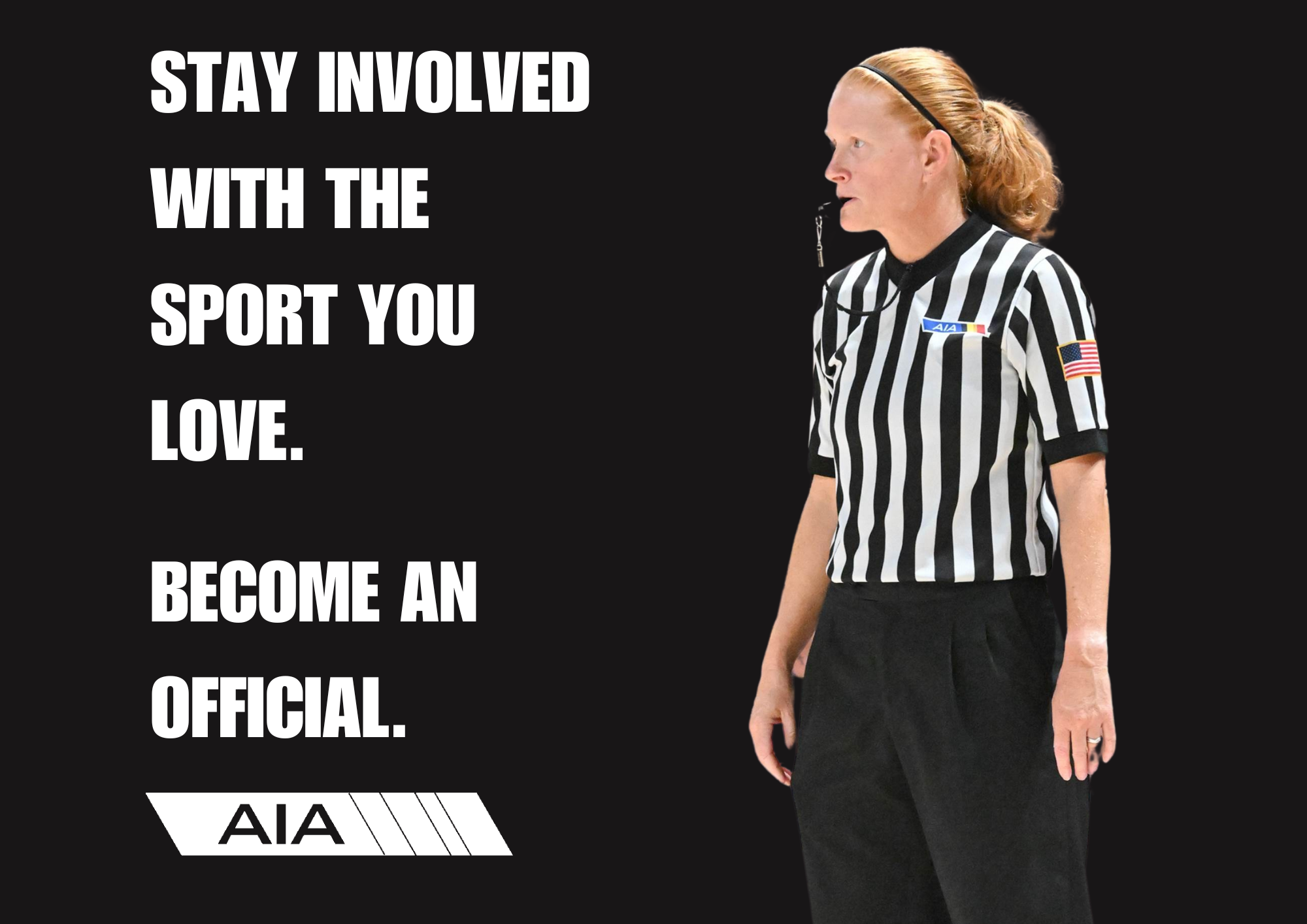Maricopa High School Athletic Director Matt Smith lost a lot, but not his purpose
October 23, 2025 by Cooper Krigbaum, Arizona State University

Cooper Krigbaum is an ASU Cronkite School of Journalism student assigned to cover Maricopa High School for AZPreps365.com
Matt Smith’s life flipped upside down in December 2020.
“‘You’re here, you are in the last game, and you’re giving everything you’ve got,’” said Smith, now Maricopa Athletic Director. “That’s the life lesson, it really was a matter of survival.”
When COVID-19 peaked, Matt’s family took extra precautions. His wife is immunocompromised, and both of his sons have mild autoimmune conditions.
Despite the risks, Matt and his family took a trip to Dallas, Texas, flying under strict airline regulations. A couple of days after coming home, symptoms appeared.
“They were gone for like two hours," he said. "I’m calling my wife, like, ‘I don’t know whether I should call an ambulance. I can’t—I can’t breathe.’”
Matt spent seven days in the ICU, isolated from his family with no visits allowed. Machines buzzed around his room with nurses, doctors and hospital staff moving around him in layers of protective gowns and masks.
After 28 days in the hospital with COVID-19, Matt survived the virus with life-threatening complications, including kidney complications, which sent him a kidney doctor.
“I went in and he said that, at that point in time, for where I was, there was a 95% mortality rate. He walked out, and I looked at my wife, and I was like, ‘Did he just tell me I should have died?’ She’s like, ‘Yeah, I think that’s what he said.’”
His oldest, Kaden, said their car rides to doctor's appointments became meaningful moments.
“Those times getting to spend with him are some of the best times he has had in a long time,” Kaden said. “It was time I really got to spend with him when he wasn't working or coaching.”
Matt spent nearly a year battling kidney failture and undergoing dialysis, which he described as “the worst of all of it.”
During this time, Matt continued coaching soccer, a career spanning more than two decades guiding players and creating lasting memories that made him the winningest girls’ high school soccer coach in Arizona history.
Finally, Matt received a kidney transplant, with a backup donor approved as well. During surgery, a former soccer player was ready to donate if the first kidney failed — giving Matt two kidneys for a short time.
Life began to return to routine for Matt, until it didn’t.
One day on a blistering hot soccer field, he felt a burning sensation on the bottom of his feet.
“I’m like, ‘My feet are freaking killing me. It’s been burning everything,’” Matt said. “I go to get in the car, and it’s just burning to the point where I’m like, ‘What?’ I take my shoes and socks off, and all five toes are blistered.”
By April 2023, nearly two and a half years after his first emergency room visit, Kaden drove Matt back to the hospital.
After a week at St. Joseph’s in North Phoenix, doctors diagnosed Matt with dry gangrene, a condition in which tissue dies from poor blood flow, turning black, shriveled and hard.
“It literally looked like parts of all my toes were almost mummified,” Matt said. “And you’re trying to walk — it was painful as hell.”
In December 2023, while still managing dry gangrene, Matt woke one morning feeling sick, noticing pain in his left shin, which led to another hospital visit.
After a series of tests, ultrasounds and discussions with doctors, Matt received unexpected news.
“All of a sudden the doctor comes in and says, ‘You’ve got 10 minutes. We’re going into surgery,’” Matt said. “I’m like, ‘Whoa, what?’ He tells me I have a staph infection and that he might have to amputate below the knee, above the knee, the whole leg — or I might not make it out at all.”
Later that afternoon, Matt woke to find his left leg amputated and part of his right foot. Doctors performed another surgery the next day to speed the healing process, which took eight months before he received a prosthetic in August 2024.
Through likely one of the toughest stretches of his life, Matt remained strong for his family.
“He was always very outgoing,” his son Kaden said. “Now there’s a different level to how he does everything. He operates almost like every day is something not to be taken for granted.”
While adjusting to his prosthesis, Matt, a passionate hockey fan, received help from former The Athletic contributor, Craig Morgan, who arranged a video message from Arizona Coyotes captain, Shane Doan.
“All that stuff that he went through post-COVID-19 and how it wrecked him and forced the amputation of his leg and part of his foot,” Morgan said. “Shane recorded a video for him that I sent to Matt, an inspirational video.”
Morgan said he normally avoids using player contacts, but in this case, he made an exception.
“I don’t do that sort of stuff because it is not ethical, but as it turns out, Matty (Matt) deserved that,” Morgan said.
After regaining mobility, Matt slowly focused on his career slowly.
“When the first stuff happened, I was at Alhambra,” Matt said. “Phoenix Union was awesome to me — they moved me to Phoenix Digital for two years.”
He followed his former principal from South Mountain High School to Tempe High School but then cuts began across the district.
“Tempe went through a whole series of cuts,” Matt said. “My job was opening up for interviews and stuff. Technically, I wasn’t cut, but part of what admin talked to me about was, ‘We know what you want to do, right?’”
Matt sought another position, ideally as an athletic director, and interviewed at Maricopa High School.
“A week later, the principal (at MHS) called and said they didn’t interview me for the AD position because I had already gotten it,” Matt said. “During interviews, my name kept coming up, and when they asked the five-year question, I said I saw myself as an athletic director — ideally here.”
Matt accepted the athletic director position at MHS without hesitation and began a new era in his life.
That doesn’t mean he forgets those who told him, No. In his new office, he keeps a list of high schools that didn’t hire him on a large whiteboard.
“If I can make every one of those people at some point say, ‘Why didn’t we hire that guy?’ then that’s the ultimate internal redemption,” Matt said.
In his first year as athletic director, Matt said he is "all in" leading MHS.
"The biggest thing I faced when I first came here is that people are like, 'Well, we've had six athletic directors in nine years,'" Matt said. "I want to leave a legacy where somebody's like, holy crap, that place is a different place after you're gone.”


